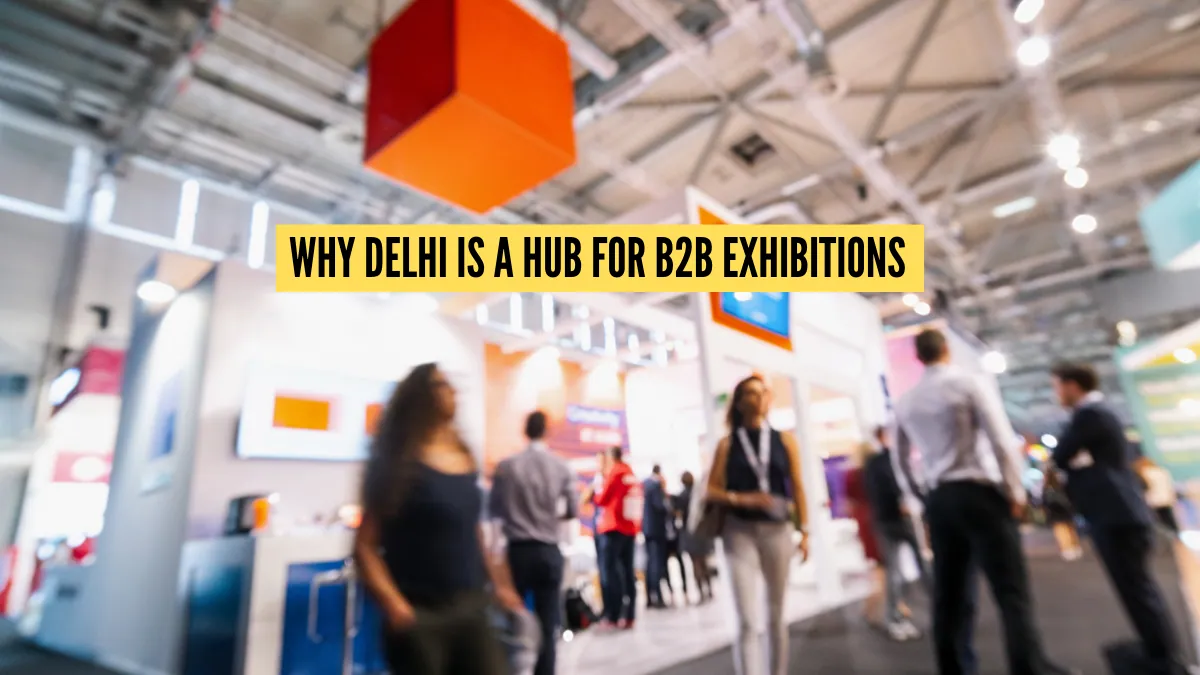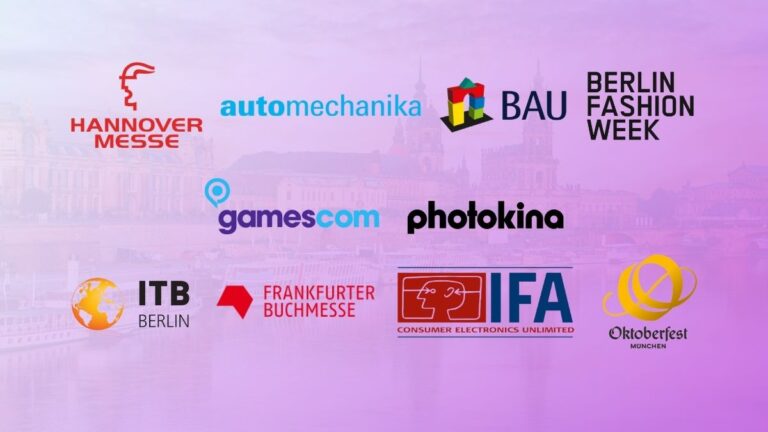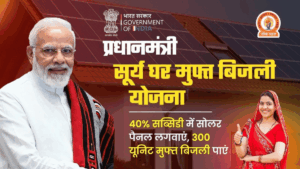Why Delhi is a Hub for B2B Exhibitions
Introduction
1. Strategic Location
One of the primary reasons for Delhi’s prominence in the realm of B2B exhibitions is its strategic location. Situated in northern India, Delhi is easily accessible from various parts of the country. The city’s well-connected transportation network, including an extensive road network, a robust railway system, and the Indira Gandhi International Airport, makes it a convenient and centralized meeting point for businesses from all corners of the nation. This geographical advantage ensures that companies can reach their target audience, customers, and partners with ease.
2. Economic Significance
As the capital and one of India’s major economic and commercial centers, Delhi offers a compelling backdrop for B2B exhibitions. The city is home to a multitude of industries, ranging from technology, manufacturing, and healthcare to education, fashion, and entertainment. This economic diversity creates a dynamic market where companies can find the right partners, clients, and suppliers. The potential for collaboration and expansion is immense, making Delhi a preferred destination for industry-specific exhibitions.
3. Infrastructure
Delhi boasts state-of-the-art exhibition venues and convention centers that can accommodate large-scale events with ease. Venues like Pragati Maidan and India Expo Centre offer world-class facilities, providing an ideal platform for hosting B2B exhibitions. These venues not only have the space and technology required but also provide comprehensive services to support the needs of exhibitors and attendees. The city’s infrastructure capabilities are a significant factor in attracting businesses looking to showcase their products, services, and innovations.
4. Thriving Business Ecosystem
Delhi’s thriving business ecosystem is a testament to its appeal as a B2B exhibition hub. The city is a melting pot of businesses, from small and medium-sized enterprises to multinational corporations. This diversity fosters an environment conducive to networking, collaboration, and partnerships. Delhi’s professionals are driven, and the city provides ample opportunities for businesses to connect with like-minded individuals and explore new avenues for growth and development.
5. Government Support
The Indian government recognizes the importance of exhibitions and trade fairs in promoting trade and commerce. As the nation’s capital, Delhi often benefits from government support and incentives to host such events. Various ministries and organizations collaborate to ensure the success of B2B exhibitions, both on the national and international levels. This governmental support helps attract a wide range of industries and encourages them to showcase their offerings.
6. Market Potential
Delhi is not only a significant market in itself but also serves as a gateway to the entire northern region of India. The northern states, including Punjab, Haryana, Uttar Pradesh, and Rajasthan, constitute a vast consumer base and a growing economy. Businesses are eager to tap into this market potential, and B2B exhibitions provide an excellent platform to do so. Exhibitors can showcase their products and services to a diverse and influential audience that extends well beyond Delhi’s boundaries.
7. International Presence
Delhi’s international connectivity is a key driver for its role as a B2B exhibition hub. With its well-connected international airport, the city serves as an entry point for many foreign businesses looking to explore the Indian market. B2B exhibitions in Delhi provide an excellent opportunity for international companies to connect with their Indian counterparts, establish partnerships, and create brand presence in a burgeoning market.
8. Industry Associations
Delhi is home to numerous industry associations and chambers of commerce, which play a crucial role in organizing and supporting B2B exhibitions. These organizations bring together industry professionals, experts, and stakeholders, providing a platform for knowledge sharing, networking, and showcasing industry-specific innovations. The involvement of these associations is a testament to the city’s commitment to fostering a vibrant business environment.
9. Networking Opportunities
Beyond its formal business environment, Delhi’s vibrant culture and social scene make it an attractive place for professionals to meet, interact, and network. B2B exhibitions provide a unique opportunity for businesses to connect, share ideas, and build essential relationships. The social aspect of Delhi complements the formal business transactions, making it an attractive destination for professionals and exhibitors alike.
10. Government Policies
The Indian government has introduced several policies and initiatives aimed at promoting trade and investment, such as “Make in India” and “Startup India.” These initiatives have created a wave of enthusiasm among businesses, both domestic and international, to explore opportunities in the Indian market. B2B exhibitions play a pivotal role in showcasing products, services, and innovations to potential partners, investors, and consumers, making them an essential component of the government’s efforts to boost the economy.
Conclusion
Delhi’s status as a hub for B2B exhibitions is a result of its strategic location, economic significance, world-class infrastructure, thriving business ecosystem, and unwavering government support. The city provides a fertile ground for businesses to connect, innovate, and expand their horizons. With its vibrant culture and social scene, Delhi goes beyond being a commercial hub; it’s a place where connections are forged, ideas are exchanged, and opportunities are realized. As businesses continue to explore new markets and opportunities, Delhi’s role in the B2B exhibition landscape is set to remain robust and promising.











